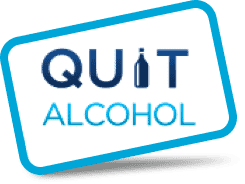Drunk driving is illegal in every state of the United States. Drivers under the age of 21 are subject to a zero tolerance law that makes it unlawful to drive after having any alcohol at all. Drunk driving laws have been effective for reducing the incidence of impaired driving, saving many lives. Community law enforcement takes steps to prevent drunk driving by instituting sobriety checkpoints. Individuals can also help to prevent this crime.
Drunk driving continues to be a serious problem. Every person must make a personal decision about drinking and driving. It’s best to make a firm decision ahead of time that you will never allow yourself to drink and drive. Having this firm conviction can be helpful for avoiding the temptation if it ever arises in the future. If you do go out in social situations where you will be drinking, make a plan ahead of time to eliminate the need to drive. You could leave your car at home and travel by cab or public transportation. Having a planned designated driver is another way to prevent and avoid drunk driving. This person often accompanies the group but abstains from drinking. A designated driver could also be someone who will pick up a group of people at the end of the evening. A group should agree upon a sober driver prior to going out to put the plan in place. If a situation arises involving an impaired person trying to drive, people can intervene to prevent a crisis.
- Speak slowly and in a non-confrontational manner when trying to reason with an impaired person.
- Ask for the car keys to give you leverage in your persuasion.
- Approach the situation as a caring friend who does not want the impaired person to harm anyone.
- Offer to take the impaired person home with you so they can sleep.
- Suggest calling a cab to get the impaired person home.
- If no persuasion attempts are successful, call the police to ensure that the impaired person does not get behind the wheel.
While on the road, it’s possible that you might encounter another driver who is under the influence of alcohol or drugs. Vigilance about this situation on the highways might enable you to protect others from danger. Watch for common signs of impaired driving. If you see a driver operating a vehicle in an impaired way, keep your distance from the other car. Do not try to pass the other vehicle, and do not signal to the other driver to pull over. These actions could cause an accident. Check the license plate number and take note of the description of the car so you can report it to the authorities. Do not try to write down this information yourself, but passengers in your car could record the license plate number, vehicle make and model, and the color of the car. Pull off the road and call 911 as quickly as possible. Be ready to report the location of the driver, the travel direction, description of the car, and driving behaviors that alerted you to the issue.
- A driver who accelerates or decelerates quickly or who tailgates might be impaired.
- Weaving and zigzagging over the road are common signs of impaired driving.
- Erratic braking or stopping for no reason could indicate a driver who is impaired.
- An impaired driver might also signal without cause, have slow responses to traffic signals, drive significantly under the speed limit, drift in and out of lanes, or narrowly miss obstacles.
- Driving down the wrong side of the road is a common mistake of impaired drivers.
Resources
- What Works: Strategies to Reduce or Prevent Drunk Driving
- Drunk Driving: How You Can Help
- December Is National Impaired Driving Prevention Month
- Impaired Driving
- Lowey Highlights Importance of Preventing Drunk Driving During the Holiday Season
- Impaired Driving in Maryland (PDF)
- Dangers of Drinking (PDF)
- Drive Sober or Get Pulled Over
- Drunk Driving: Over the Limit, Under Arrest (PDF)
- Impaired Driving
- Alcohol Dangers Go Beyond Drunk Driving
- Dangers of Teen Drinking
- DMV Warns About the Dangers, Penalties of Drinking and Driving and Underage Drinking
- Alcohol Alert: Drinking and Driving
- Prevent Yourself From Getting a DUI
- NHTSA Uses “the Force” to Stop Drunk Driving
- How Dangerous Are Drinking Drivers? (PDF)
- Driving Under the Influence
- Driving Home DUI Dangers
- College Drinking (PDF)
- Drinking and Driving
- What Can You Do to Prevent Drinking and Driving?
- Preventing Drunk Driving
- Drunk Driving Prevention and Awareness
- Alcohol Crash Facts

